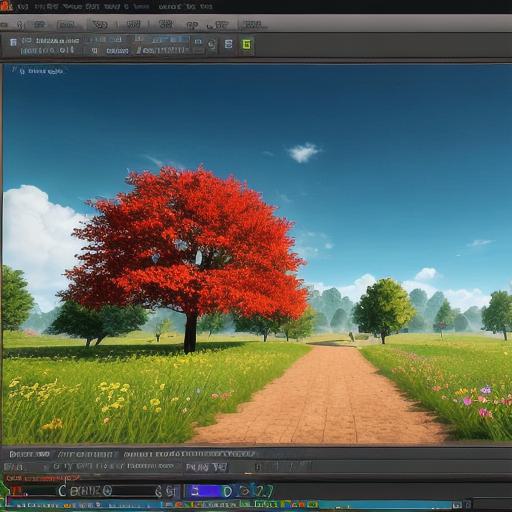Introduction
Game development is a highly competitive and constantly evolving field, requiring a unique set of skills and tools to succeed. As the industry continues to grow, new opportunities are emerging for developers who are willing to learn, adapt, and innovate. In this article, we will explore the essential tools and skills needed to become a successful game developer, including programming languages, game engines, design methodologies, and soft skills. We will also examine real-life examples of successful game developers who have mastered these skills and achieved success in their careers.
Programming Languages
The first step in becoming a successful game developer is to master at least one programming language. There are many programming languages used in game development, including C++, Java, Python, and C. Each language has its strengths and weaknesses, and the choice of language will depend on the type of game being developed and the preferences of the development team.
For example, C++ is often used for developing high-performance games that require low-level control over system resources, while Python is commonly used for rapid prototyping and scripting. Java is popular for mobile game development, while C is often used for creating games for Microsoft platforms.
Game Engines
The next essential tool for successful game development is a game engine. A game engine provides developers with a set of tools and technologies that simplify the process of creating games. Game engines include Unity, Unreal Engine, CryEngine, and Godot, among others.
Each game engine has its own strengths and weaknesses, and the choice of engine will depend on the type of game being developed and the preferences of the development team. For example, Unity is a popular choice for mobile and PC game development, while Unreal Engine is often used for creating high-performance games for consoles and PCs.
Design Methodologies

Successful game developers must also master design methodologies to create engaging and immersive experiences for players. There are many design methodologies used in game development, including Agile, Waterfall, and Lean. Each methodology has its own strengths and weaknesses, and the choice of methodology will depend on the preferences of the development team.
For example, Agile is a popular choice for game development because it allows for flexibility and rapid iteration, enabling developers to quickly adapt to changing requirements and feedback from players. Waterfall is often used for larger-scale projects that require strict planning and control, while Lean emphasizes efficiency and waste reduction.
Soft Skills
In addition to technical skills, successful game developers must also possess strong soft skills, including communication, teamwork, problem-solving, and creativity. These skills are essential for working effectively in a development team, collaborating with designers and artists, and addressing the challenges that arise during game development.
For example, effective communication is critical for game development because it enables developers to share ideas, give and receive feedback, and resolve conflicts quickly and efficiently. Teamwork is also essential for successful game development because it requires collaboration between different roles and disciplines, including programming, art, design, and production.
Case Studies
To illustrate the skills and tools needed to become a successful game developer, let’s examine some real-life examples of successful game developers who have mastered these skills and achieved success in their careers.
- Markus Persson (Minecraft)
Markus Persson is a Swedish programmer and game designer who created the popular sandbox game Minecraft. He began programming at a young age and learned C++, Java, and Python. Later, he used Unity to create Minecraft and collaborated with a team of designers and artists to bring his vision to life.
Persson’s success in game development can be attributed to his strong technical skills, creativity, and ability to work effectively in a team. He has also been very vocal about the importance of learning from failure and taking risks in game development.
- John Carmack (Doom)
John Carmack is an American programmer and game designer who co-founded id Software and created the popular first-person shooter game Doom. He began programming at a young age and learned C++, which he used to create Doom’s engine and gameplay mechanics.
Carmack’s success in game development can be attributed to his strong technical skills, creativity, and ability to push boundaries in the industry. He has also been very vocal about the importance of learning from failure and taking risks in game development.
Conclusion
Becoming a successful game developer requires a unique set of skills and tools, including programming languages, game engines, design methodologies, and soft skills. By mastering these skills and collaborating effectively with a team of designers and artists, developers can create engaging and immersive experiences for players that resonate with audiences around the world.
FAQs
- What is the best programming language for game development?
The choice of programming language for game development will depend on the type of game being developed and the preferences of the development team. C++, Java, Python, and C are popular choices for game development.
- What is the most popular game engine?
Unity is one of the most popular game engines used in game development, especially for mobile and PC games. Other popular game engines include Unreal Engine, CryEngine, and Godot.
- What is agile methodology?
Agile methodology is a flexible and iterative approach to software development that emphasizes collaboration, flexibility, and rapid iteration. It is commonly used in game development because it allows for flexibility and quick adaptation to changing requirements and feedback from players.
